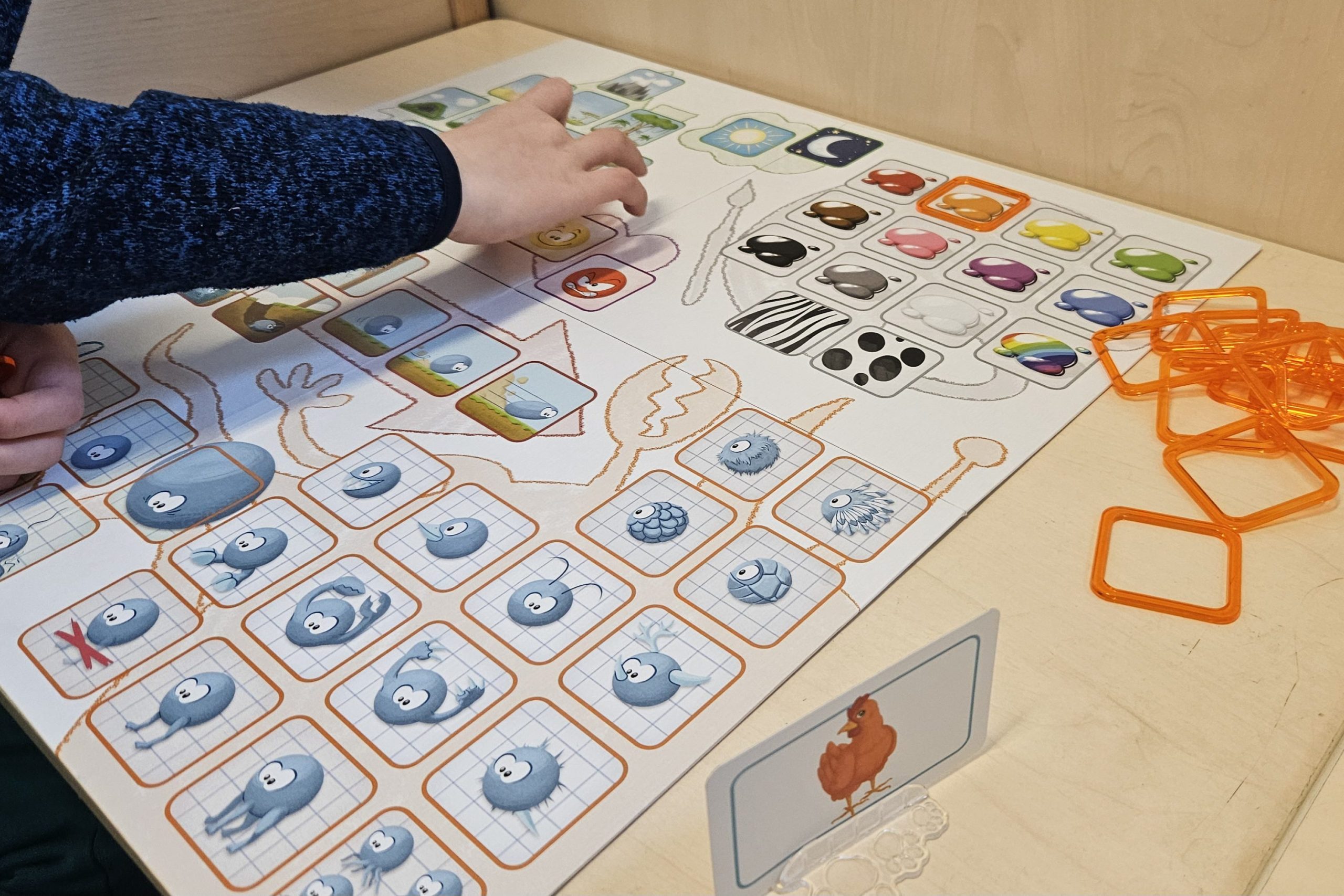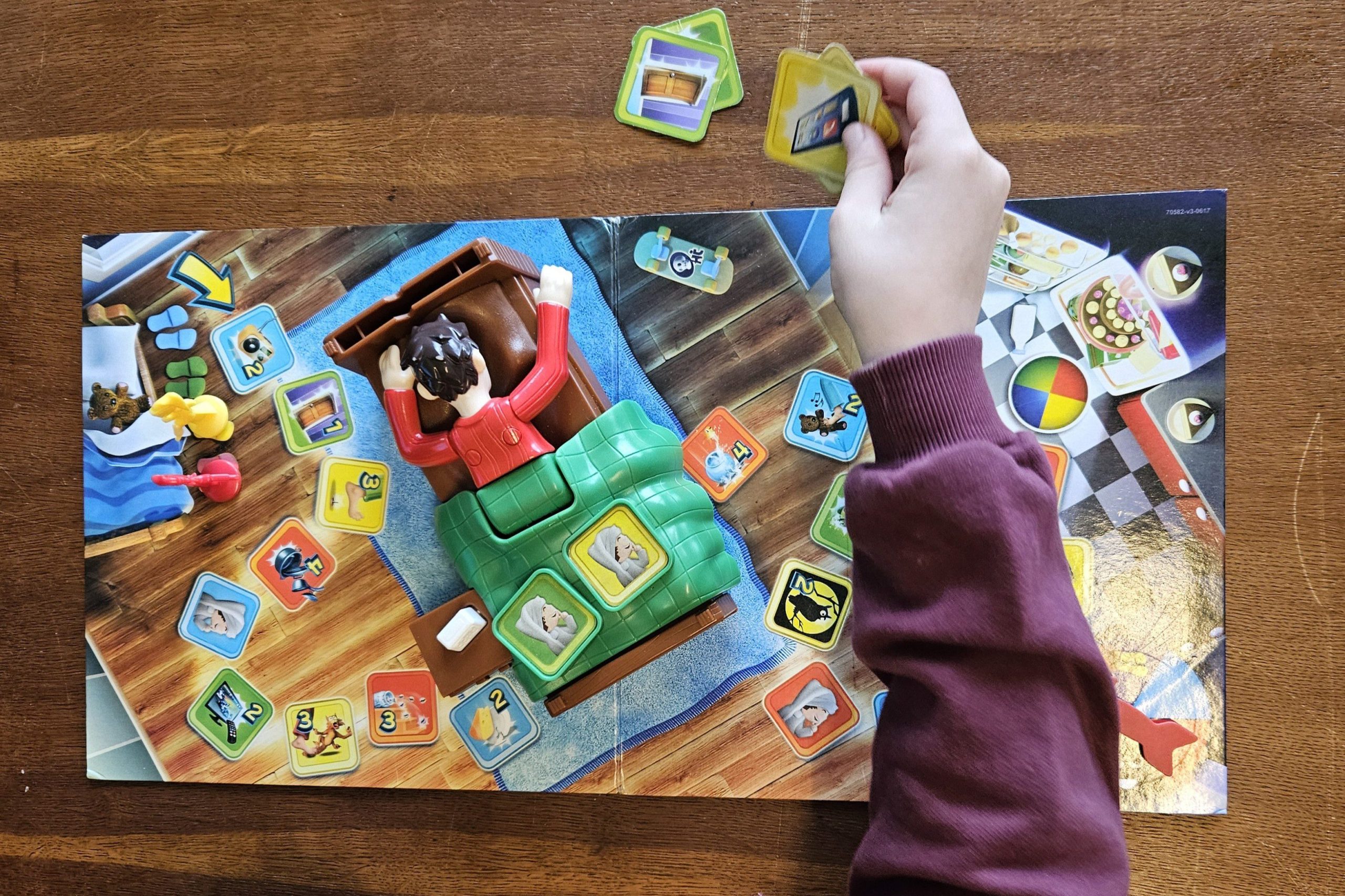
More Than Just Fun and Games: How Board Games Boost Communication Skills
Do I play games all day? Yes, I do. Is it just for fun? Yes and no...
By Mieke du Preez, Speech and language therapistAs a speech and language therapist, I use board games all the time in my sessions. However, while children think they are just having fun, there is a lot more going on beneath the surface. board games are a fantastic tool for improving speech sounds, expanding language skills, and enhancing social communication — all while keeping children engaged and motivated. Let’s take a closer look at how board games help develop these essential skills and how parents can use them at home too.
Board Games for Speech Sound Development
Board games provide the perfect opportunity to practice tricky speech sounds in a fun and natural way. Any board game can be tailored to target specific sounds. If a child is working on the /s/ sound for example, they can practice saying words like spin, steal, stop, stay, skip, dice, some, spot, six, seven, points as these words often occur naturally within the game. This repeated practice, embedded in play, makes speech therapy feel effortless while reinforcing correct articulation.
Expanding Language Skills Through Play
Beyond sounds, board games help children develop essential language skills. Simple board games encourage them to:
- Expand their sentences (e.g., “I want the big red car” instead of “car”).
- Formulate questions (“Where do I move next?” / “Does your person wear glasses?”).
- Use correct verb tenses (“I jumped over the log” instead of “I jump over the log”).
- Work on pronouns and prepositions (“She is behind the tree” / “The monkey fell off”).
- Enhance describing skills (e.g. “I have an animal. It’s yellow and black, lives in a hive and buzzes”).
- Follow multi-step instructions (“First roll the dice, then move your piece”).
With each board game, children get the opportunity to practice these skills in real time, making learning more meaningful and engaging.

Improving Social Communication
Board games also teach vital social communication skills. Children learn to follow rules, wait for their turn, collaborate with others, plan and strategize, handle winning and losing, and express their thoughts clearly. Collaborative games encourage teamwork, while competitive ones help with emotional regulation and good sportsmanship. These are all essential life skills that go beyond the therapy session and into everyday interactions.
How Parents Can Use Board Games at Home
You don’t need fancy materials to boost your child’s language skills at home. Many common board games can be adapted for speech and language practice! Here are some simple ways to make playtime more enriching:
- Pause and Prompt: Instead of immediately giving your child what they want, encourage them to ask for it using a full sentence.
- Comment and Expand: If your child says, “Monkey off” expands their sentence by adding more details: “Yes! The monkey fell off the tree!”
- Encourage Social Skills: Play games that require turn-taking and encourage positive interactions like praising a sibling for a good move.
- Use Everyday Games for Learning: Memory games build vocabulary, charades improve descriptive language, and board games strengthen conversational skills.
Many different board games can be used to target speech and language skills — it’s all about how you play! Some of my favourite games include: Bunny Hop, Zingo, Shopping List, Guess Who, Concept Kids, Cluedo Junior, Outfoxed and Cat Crimes. These games offer opportunities to practice describing, asking and answering questions, following instructions, and using problem-solving skills. However, the skills mentioned above can be practiced with any boardgame. The key is to be intentional in how you play with your child.
So, do we play board games all day in speech therapy?
Yes! But it’s far from just fun and games — every roll of the dice, every spin of the wheel, and every turn taken is an opportunity for growth. Whether in therapy sessions or at home, board games provide an engaging way to help children develop their speech, language, and social communication skills. In an ideal world, all families would incorporate one board game night/day into their weekly routine. Next time you play a boardgame with your child, remember — you’re not just having fun, you’re helping them learn in the best way possible!
